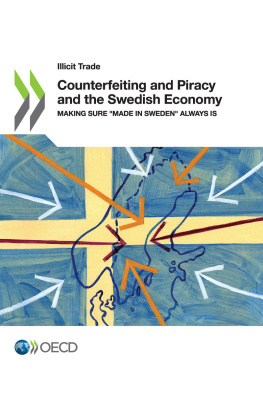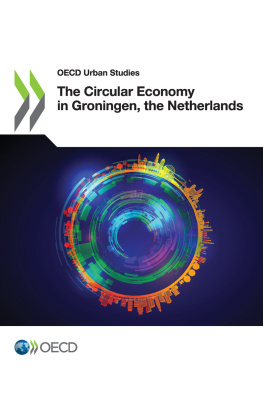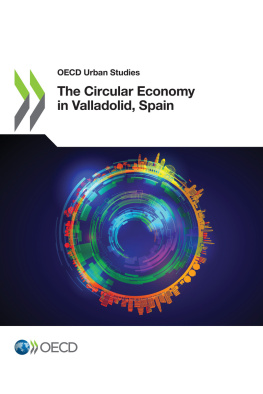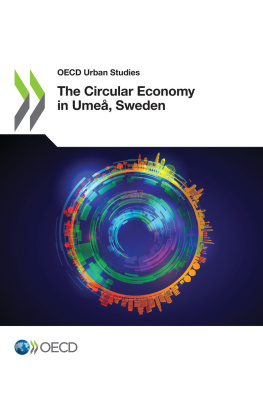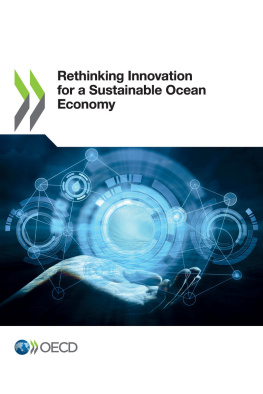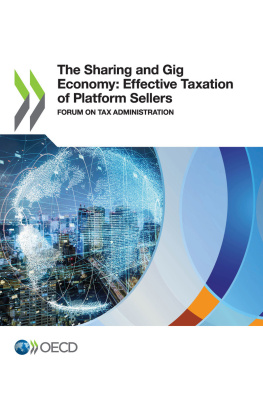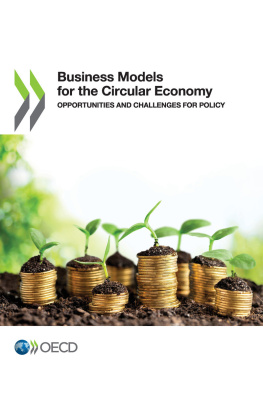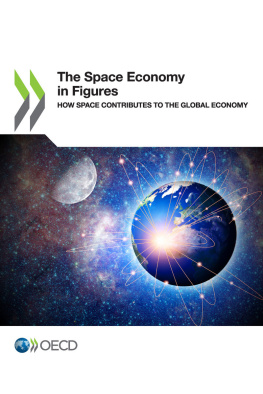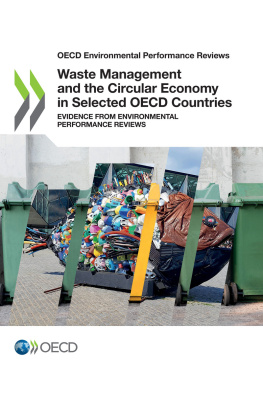OECD - Counterfeiting and Piracy and the Swedish Economy
Here you can read online OECD - Counterfeiting and Piracy and the Swedish Economy full text of the book (entire story) in english for free. Download pdf and epub, get meaning, cover and reviews about this ebook. year: 2019, publisher: OECD Publishing, genre: Home and family. Description of the work, (preface) as well as reviews are available. Best literature library LitArk.com created for fans of good reading and offers a wide selection of genres:
Romance novel
Science fiction
Adventure
Detective
Science
History
Home and family
Prose
Art
Politics
Computer
Non-fiction
Religion
Business
Children
Humor
Choose a favorite category and find really read worthwhile books. Enjoy immersion in the world of imagination, feel the emotions of the characters or learn something new for yourself, make an fascinating discovery.
- Book:Counterfeiting and Piracy and the Swedish Economy
- Author:
- Publisher:OECD Publishing
- Genre:
- Year:2019
- Rating:5 / 5
- Favourites:Add to favourites
- Your mark:
- 100
- 1
- 2
- 3
- 4
- 5
Counterfeiting and Piracy and the Swedish Economy: summary, description and annotation
We offer to read an annotation, description, summary or preface (depends on what the author of the book "Counterfeiting and Piracy and the Swedish Economy" wrote himself). If you haven't found the necessary information about the book — write in the comments, we will try to find it.
OECD: author's other books
Who wrote Counterfeiting and Piracy and the Swedish Economy? Find out the surname, the name of the author of the book and a list of all author's works by series.
Counterfeiting and Piracy and the Swedish Economy — read online for free the complete book (whole text) full work
Below is the text of the book, divided by pages. System saving the place of the last page read, allows you to conveniently read the book "Counterfeiting and Piracy and the Swedish Economy" online for free, without having to search again every time where you left off. Put a bookmark, and you can go to the page where you finished reading at any time.
Font size:
Interval:
Bookmark:
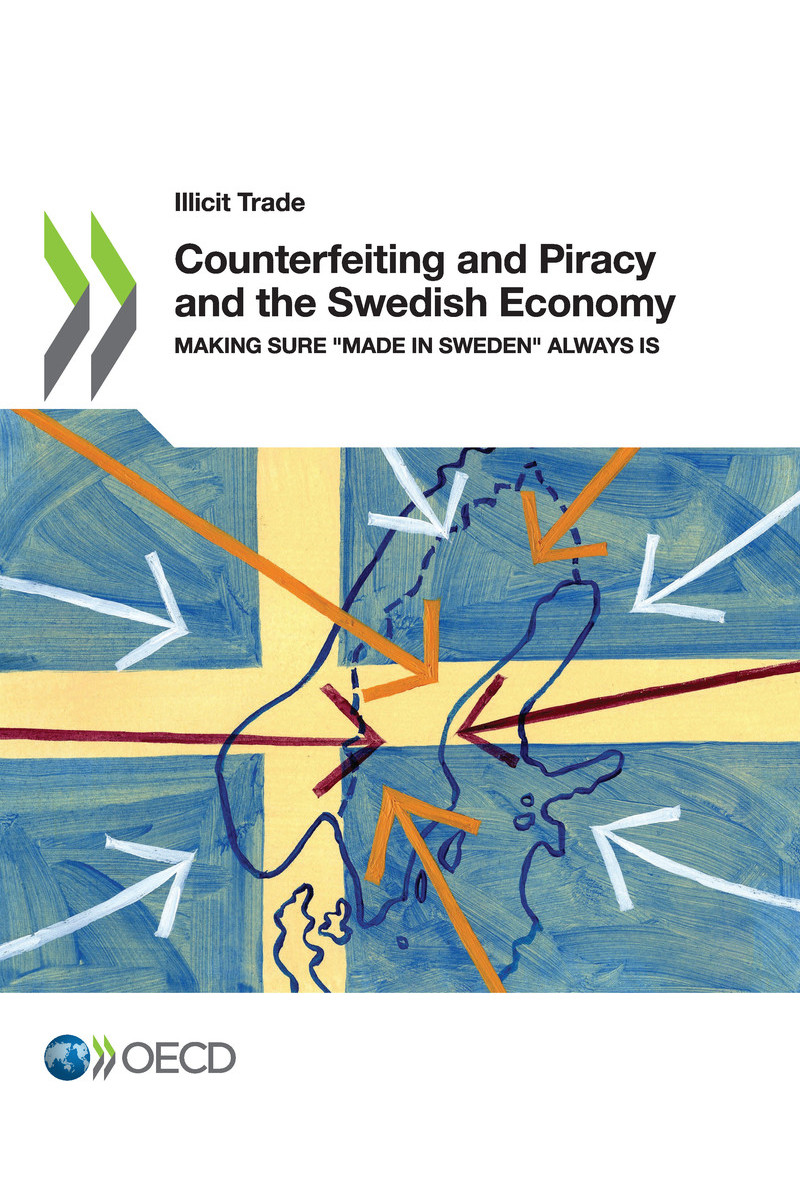
OECD (2019), Counterfeiting and Piracy and the Swedish Economy: Making Sure "Made in Sweden" Always Is , Illicit Trade, OECD Publishing, Paris, https://doi.org/10.1787/eb300f5b-en .
Sweden is an advanced, knowledge-based economy that produces highly valued products and services that benefit significantly from intellectual property. Sweden has an open economy, actively participating in global value chains. While these are features of a modern, dynamic economy, they also make Sweden vulnerable to the global risks of counterfeiting and piracy.
Illicit trade in counterfeit goods is a vital threat to Swedish industry, government and society. To provide policy makers with solid empirical evidence for taking action against this risk, this OECD report measures the direct economic effects of counterfeiting on consumers, retail and manufacturing industries, and government. It assesses both the impact of imports of fake products to Sweden and the impact of the global trade in fake products on Swedish intellectual property rights holders.
The results are alarming. In 2016, world trade in counterfeit and pirated goods that infringe on Swedish brands reduced sales of legitimate Swedish right owners by at least USD 2 billion, or 2% of their annual sales, and lowered the tax revenue of Swedish government by about USD 900 million, or 0.2% of Swedish GDP. A vast majority of losses including more than two-thirds of lost jobs, and three-quarters of foregone tax revenue is due to trade in fake goods outside of Sweden that infringe on Swedish intellectual property (IP) rights. These results underscore the need for co-ordinated international action against IP crime in general and trade in counterfeits in particular.
This report is designed to deepen our understanding of the vital risk that counterfeiting poses for global economy, and should help support policy makers as they shape effective solutions to counter this threat.

Peter Strmbck,
Director General,
Swedish Patent and Trademark Office (PRV)

Marcos Bonturi,
Director,
OECD Public Governance Directorate
The report was prepared by Piotr Stryszowski, Senior Economist, and Morgane Gaudiau, Economist, at the OECD Directorate for Public Governance led by Marcos Bonturi. Florence Mouradian provided valuable knowledge and assistance to the quantitative analysis.
The authors wish to thank Peter Hedin from the Swedish Patent and Trademark Office (PRV) for excellent, trust-based co-operation, and valuable insights.
The authors are also grateful to representatives of Swedish industry for the valuable assistance provided. Special expressions of appreciation are given to Mr. Paul Pintr and Mr. Christian Dalsgaard from Fjllrven as well as to Mr. Johan Bravert from SKF.
Raquel Paramo, Eleonore Morena and Andrea Uhrhammer provided editorial and production support.
The database on customs seizures was provided by the World Customs Organization (WCO) and supplemented with regional data submitted by the European Commission's Directorate-General for Taxation and Customs Union, the US Customs and Border Protection Agency and the US Immigration and Customs Enforcement. The authors express their gratitude for the data and for the valuable support of these institutions.
This report presents the findings of the Swedish case study of trade in counterfeit and pirated goods. It looks at the problem from two perspectives. First, it analyses the scale and product composition of counterfeit and pirated products smuggled into Sweden and the effect on consumers, industries and the Swedish government. Second, it studies the magnitude and effects of global trade in counterfeit goods that infringe on the rights of Swedish trademark holders.
This dual analysis is based primarily on a quantitative assessment of global trade in counterfeit products within and outside Sweden, using the tailored statistical methodologies developed by the OECD, together with a large dataset on customs seizures of IP-infringing goods.
The findings can help both public and private sector decision makers better understand the nature and scale of the problem for the Swedish economy, and develop appropriate, evidence-based policy responses.
The total value of world trade in fake goods that infringed on Swedish IP amounted to as much as SEK 28.3 billion (USD 3.4 billion) in 2016, equivalent to 2% of total Swedish manufacturing sales (domestic plus exports).
Products where Swedish IP rights were particularly targeted, in terms both of the absolute value of trade and of percentage of total trade in a given product category, include automotive spare parts, machinery (bearings), clothing, toys and watches.
Counterfeit and pirated goods that infringe on the intellectual property rights (IPRs) of Swedish right holders come mainly from China; Hong Kong, China; Singapore and Turkey.
The results indicate that in 2016, over one-half of the goods traded worldwide that infringed Swedish IPRs were offered to consumers who knew they were buying fake goods.
Font size:
Interval:
Bookmark:
Similar books «Counterfeiting and Piracy and the Swedish Economy»
Look at similar books to Counterfeiting and Piracy and the Swedish Economy. We have selected literature similar in name and meaning in the hope of providing readers with more options to find new, interesting, not yet read works.
Discussion, reviews of the book Counterfeiting and Piracy and the Swedish Economy and just readers' own opinions. Leave your comments, write what you think about the work, its meaning or the main characters. Specify what exactly you liked and what you didn't like, and why you think so.

